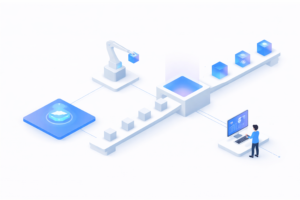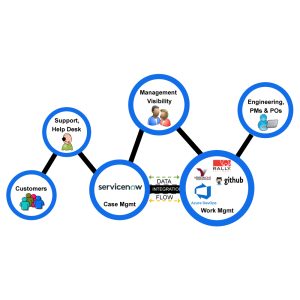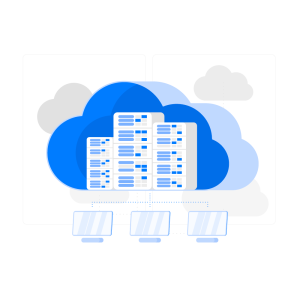If you’re managing cloud infrastructure, you’ve likely seen how quickly costs can spiral. But cutting services or throttling capacity isn’t a long-term fix. True optimization lies in understanding the unit economics of your cloud knowing exactly what you’re spending, where it’s going, and what value it’s returning. That’s where Apptio Cloudability comes in.
Cloudability helps you view cloud cost in context: per service, per product, per customer, or per business unit. With this level of clarity, engineering, finance, and business teams can make data-informed decisions that balance cost, performance, and innovation.
What Is Unit Economics in the Cloud and Why It Matters
Unit economics in a cloud context means understanding cost per unit of business value. For example, if you run a SaaS product, your units might be cost per active user, per API call, or per customer license.
This perspective allows teams to stop viewing cloud spend as a general IT overhead and start seeing it as a variable cost linked to business outcomes.
With Apptio Cloudability, this link becomes measurable and actionable. Instead of reacting to surprise cloud bills, teams can proactively allocate resources, forecast spend, and justify investments with real data.
Gaining Granular Visibility Across Multi-Cloud Environments
One of the biggest challenges with cloud economics is managing multi-cloud complexity. Different platforms have different billing models, services, and data structures.
Apptio Cloudability provides normalized, unified views across AWS, Azure, GCP, and hybrid infrastructure. With cost and usage data ingested daily and aligned to your organizational structure, you get clear answers to questions like:
- Which teams are consuming the most resources?
- What’s driving the recent cost spike in storage?
- Are we over-provisioned in computers for a low-traffic product?
You can drill into spending by tags, linked accounts, containers, or custom business dimensions to uncover inefficiencies and opportunities at every layer.
Enabling Financial Accountability with Showback and Chargeback
A key enabler of cloud cost efficiency is financial accountability. When teams understand their impact on the cloud bill, they’re more likely to optimize usage and eliminate waste.
Cloudability enables showback and chargeback models, aligning cloud costs with internal stakeholders. This fosters a culture of ownership and transparency, where teams can:
- See their cloud cost in real time
- Compare budgeted vs actual spend
- Forecast based on usage patterns and growth trajectories
With cost ownership, the conversation shifts from “Who used this?” to “How do we use this better?”
Rightsizing Without Compromising Performance
Rightsizing is more than turning off idle instances. It’s about optimizing for performance, availability, and cost simultaneously. Cloudability helps you identify and act on underutilized resources like oversized instances, unused reserved capacity, or unnecessary data transfers.
Its recommendations are data-backed and tailored to your environment, allowing you to:
- Reclaim stranded capacity
- Resize or reassign resources based on usage
- Take advantage of savings plans and reserved instances
All of this contributes to a leaner, more efficient cloud footprint that aligns with your growth needs not just today, but over time.
Making Cloud Spend Predictable with Budgeting and Forecasting
In fast-growing organizations, cloud costs can quickly outpace planning cycles. Apptio Cloudability provides tools to build budgets, set thresholds, and generate forecasts based on historical data and usage trends.
With automated alerts and variance reports, teams are empowered to:
- Stay within spending limits
- Course-correct in real time
- Adapt forecasts to align with product and business changes
This shift from reactive to proactive planning reduces the risk of cost overruns and helps organizations maintain financial agility.
Aligning Cloud Investments with Business Outcomes
Optimizing cloud unit economics isn’t just about trimming the fat—it’s about aligning investments with what matters most. Cloudability integrates cost data with performance and business metrics so teams can evaluate trade-offs and outcomes.
You can correlate:
- Infrastructure costs with application performance
- Deployment patterns with customer usage
- Spend trends with revenue contribution
This multi-dimensional insight helps prioritize where to invest next—whether that’s scaling a customer-facing application, adopting new services, or rearchitecting legacy workloads.
Empowering Cross-Functional Collaboration
Cloud economics is no longer the sole responsibility of IT or finance. It’s a cross-functional conversation involving DevOps, product managers, engineering leads, and CFOs.
Apptio Cloudability supports this collaboration by offering custom dashboards and reports tailored to different stakeholders. This enables:
- Engineers to monitor cost alongside performance metrics
- Finance teams to align cloud spend with budgets
- Executives to understand ROI and support decision-making
It breaks down silos and builds a shared understanding of how cloud spend contributes to strategic goals.
Measuring Cloud Maturity and Driving Continuous Optimization
Cloud optimization isn’t a one-time exercise. It’s an evolving capability that matures over time. Apptio Cloudability offers maturity assessments, cost optimization scoring, and benchmarking tools that allow organizations to track their progress.
As teams implement cost governance practices and improve tagging hygiene, they can gradually unlock:
- More precise cost attribution
- Deeper optimization opportunities
- Stronger alignment between cloud and business strategy
This creates a feedback loop that drives continuous improvement in both cost and operational performance.
Governance and Policy Automation for Scale
As organizations scale, manual cost controls become unsustainable. Apptio Cloudability supports policy-based governance, enabling automated enforcement of cost optimization strategies.
You can define policies such as:
- Alert when an untagged resource exceeds a cost threshold
- Flag non-production workloads running outside business hours
- Automatically assign owners to cloud spend categories
This level of automation ensures that as your infrastructure grows, your cost discipline grows with it.
Conclusion: Optimize with Confidence. Partner with Nexright.
Cloud optimization isn’t a luxury, it’s a requirement for organizations that want to scale sustainably. With Apptio Cloudability, the path to optimized unit economics is clearer, more actionable, and more collaborative than ever.
At Nexright, we help businesses harness the full potential of Apptio Cloudability by:
- Customizing deployments to fit unique operational needs
- Integrating Cloudability with existing cloud management and DevOps tools
- Enabling organizational alignment through education and enablement
We bring deep expertise in cloud financial management and a commitment to measurable outcomes. Whether you’re just starting to build visibility or looking to maximize ROI from existing tools, Nexright helps you turn cloud spend into a strategic advantage.
Let’s make your cloud investments work harder, smarter, and more transparently with Cloudability and Nexright




